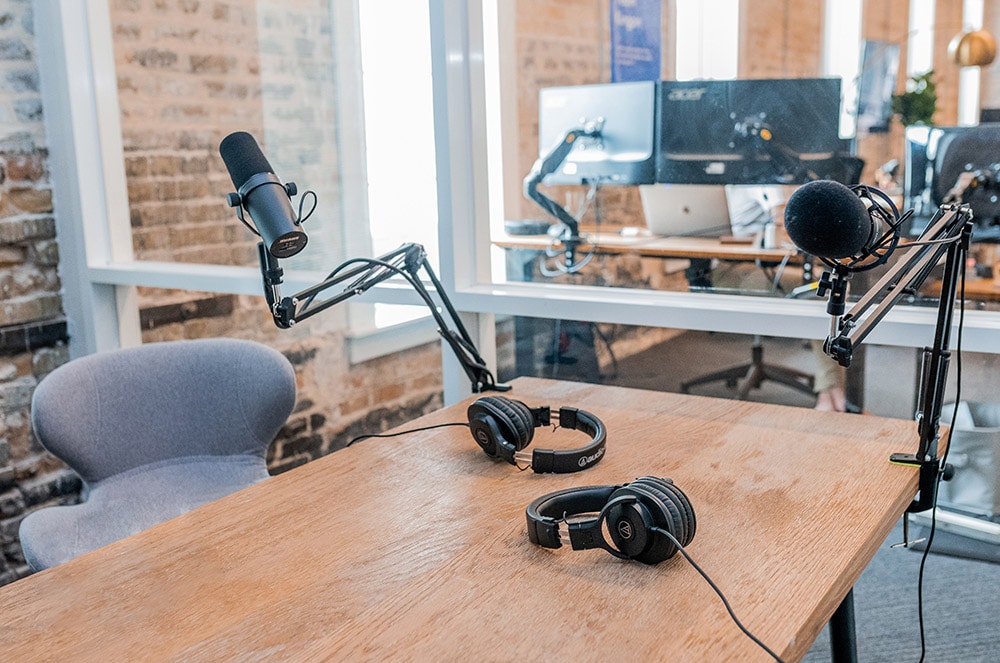As the COVID-19 continues to impact the travel industry, we decided to organize a virtual event with three professionals in the vacation rental and short-term rental industry to discuss how to minimize the impact and adapt to this new economy.
Lodgify’s own Carla Chicharro (Inbound marketing manager) along with industry professionals Victor Bosselaar, Data Sales and Partnerships of Alltherooms; Pedro Borges, Data Scientist of Pricelabs and Jasper Ribbers, owner of Getpaidforyourpad discussed the impact of COVID19 in our industry, as well as the best practices and strategies to adapt to the new economy. In an effort to help fellow vacation rental owners and property managers, panelists shared personal advice, suggested tactics and recommended the solutions that have worked for them.
Webinar Video
We started the event with Carla introducing the attendees to Lodgify’s all-in-one software and shared Lodgify’s newest features; property management modules and a new subscription plan. The Starter plan is now available at only $12 with a yearly commitment. PM modules include the following features: guest management, task management, automation, reporting and accounting.
Victor from Alltherooms Analytics then shared his presentation on the data owners can use to predict recovery. He shared and compared occupancy rates of New York, Texas, Spain and Germany, as well as compared them year over year to get a better picture of the impact of COVID-19. Some useful tips Victor shared include mentioning CDC and cleaning protocols on your listings and websites and staying up-to-date with industry data.
We then heard from Pedro from Pricelabs on booking trends and strategies to adapt during this time. Pedro suggested vacation rental owners and property managers implement aggressive LOS (length-of-stay) and last-minute discounts, offer flexible cancellation policies and fewer restrictions.
Lastly, Jasper shared his insights as a vacation rental owner and property manager, addressing the issues short-term rental professionals are currently experiencing.
Q&A Session
We wrapped up the event by inviting our attendees to share with us their questions. Here are the main questions asked during the event (edited for clarity):
Would you please share the government aid available to hosts of vacation rentals in the U.S. and Canada and send the links that work for applying?
You can find the list of government aid links on our COVID-19 resource center. We also recommend you check out VRMB’s Reset hub, as well as VRMA’s advocacy center.
As far as revenue strategy, what do you recommend we do to get through this? How should we change rates and by how much? Basically, what are the best steps to go forward as an owner and how do they know that they’re doing good?
Pedro: Right now the price adjustment strategy in the near future should focus on 3 factors:
- Booking window: Booking window is the equivalent of last-minute prices – Gradually discounting prices as the date comes near.
- Listing occupancy: Listing occupancy accounts for the listing’s individual performance – If a listing is still getting booked, you can discount it less.
- Minimum price: Finally, managers should calculate a minimum price below which it does not make sense to rent the listing. For PriceLabs users, this could mean a discount between 0% and 65% (using the Coronavirus Occupancy Based Adjustments and Last Minute Prices), never going below the minimum price.
Already included the Coronavirus Occupancy Based Adjustments on the response above, but two other resources that we have release specifically in response to this situation are FREE market dashboards for anyone around the world to track the market in their area and a summary of our price adjustment recommendations during the Coronavirus response.
If the ALD is degrading why would it be a good idea to offer aggressive last-minute discounts?
Pedro: We are recommending aggressive last-minute discounts because right now there’s a lot more supply waiting to be booked last-minute, as people aren’t booking farther out. With that in mind, we still don’t recommend reducing rates farther out without knowing how things will pan out.
Do you think it’s worthwhile to consider canceling all remaining short-term rental bookings for the year and switching to mid or long-term until the end of the year?
Jasper: It depends on your market. If you’re expecting your market to bounce back in the upcoming months, then maybe not. But what you definitely want to do regardless is to reach out to all of your future guests, especially those that booked before March 14th, and proactively find out if they’re still willing to go to your properties. The last thing you want is to have a bunch of bookings blocking your calendar and have them all being canceled a few days before check-in.
However, if you do have anyone interested in booking your rental for the next 6 months, I would definitely consider it over having a bunch of short-term bookings right now. Even if you get penalized for it and lose your Superhost status; there will always be time to recover that status afterward. You have to consider all of your options and act consequently.
How do I encourage guests on social media to book in 2021? Do you think Instagram accounts are a great option for marketing your properties as well?
Be active! Users are currently spending a lot more time online and by sharing valuable content, you’ll have more possibilities to be seen. Get on Facebook groups, start sharing content on Instagram and just let them know you’re there. Use your channels to share information about your local community and hype your location. Travelers are currently stuck at home in need of some travel inspiration; inspire them with your content. Although they’re not looking to book right now, aim to keep your location at the top of their mind so that when they can travel, they think of your business immediately.
We’ve created several guides on how to use social media and Instagram to market your vacation rental business. Check out: Instagram for Vacation Rentals: 55 Marketing Tips and How to Market Your Vacation Rental on Social Media.
How much of overkill is it to have a dedicated own website outside of a PMS? How big would the benefits be?
That’s a great question! Before deciding whether to use a specific vacation rental website builder or a more generic content management system (CMS), think about all of the pros and cons that come with each. One of the easiest ways to make the right choice is by asking yourself the following questions: How easy is it to use? How flexible is it? How will it be hosted? Does it come with a free domain? What maintenance does it require? Does it come with a booking system? Can I integrate bookings from my website to a PMS?
In a nutshell, having your website with a PMS like Lodgify allows you to save a lot of time and resources. You won’t have to worry about setting up your hosting, domain name, getting an external booking system because you’ll find all of those features in Lodgify!
If you’re not sure what differences there are between these two types of website creation tools, we recommend you read through this article: Vacation Rental Website Builder vs. Generic CMS: Which Should I Use? – We take a look at each system and explore what they are, as well as discuss the pros and cons of each type for vacation rental business owners.
How and should we be advertising new cleaning standards? Is this a real concern for guests or is this more of an afterthought and more of an assumption that the place is cleaned appropriately?
Airbnb, Vrbo and other OTAs and hotels have started releasing their cleaning seals and protocols. Guests will expect the stringent cleaning standards and will demand more insight into how properties are cleaned. Travelers have lost their confidence in traveling and sharing with them how seriously you take their safety might help you recover their trust.
Jasper: One of my students at STR Profit Academy even uploaded a screenshot of her cleaning protocol to her listing and it’s definitely helped her spike interest in her property.
Where can I get the best short term lease contract?
We’ve created a downloadable vacation rental agreement template you can download for free. Hope this helps!
We got some angry emails from the clients after sending out a newsletter, saying that we are encouraging travel in a dangerous situation. Any recommendations/thoughts on that when it is the best time to start marketing – right now or wait a little bit before the situation improves?
You really have to be careful with the messaging you use in your guest communications. International guests that live in New York or Spain could get more offended by emails with offers, especially if they’re mid-term offers.
We recommend shifting towards “goodwill marketing”. Compassion and honesty are the new standards. According to the Harvard Business Review: “People will remember brands for their acts of good in a time of crisis, particularly if done with true heart and generosity.”
You might not manufacture ventilators or create personal protective equipment (PPE) at scale. And that’s OK. But make sure your messaging is acutely aware of our world, and the fear so many people are experiencing.
It’s a time for working with your community. Let them know that you wish they’re safe, you’re thinking of them and that you’re there for them. Offer real help and support, not just discounts.
Stress the guidelines you’ve adopted and share “feel-good” content. We all need a break from the world. An example would be sharing with them virtual tours of your property or even better, your location. Get in touch with local businesses and see if they’d be interested in working with you to get a lot more exposure.
I have 250 past guests from Airbnb in the last 2 years. I only have their phone numbers and never contacted them, how specifically would you contact them? Whatsapp? Text? Any great suggestions?
It really depends on where you and your past guests are located. If your past guests are from Europe, we don’t recommend getting in touch with them without their consent due to the General Data Protection Regulations (GDPR). However, it would be best practice in the future to ask your guests if they can share with you their email address and give you consent to get in touch in the future. Save that information, in addition to the phone number and guest name (maybe even their home base/location) in a spreadsheet.
With non-European users, segment your user base and select those that gave you the highest reviews, as well as live closest to your properties. Try messaging a small sample (5 past guests) to see the response. If the response isn’t too negative, you can then try with a bigger sample.
You can even test the messaging with these samples. You could try sending two messages, the first message would include an introduction of you and your business and ask for their consent to send them more information on your updates and/or latest offers. The second message would include the updates and offers you’d like to share with them. You could also try the same messaging into one single message.
I’ve just purchased a villa in the South of France and we have almost finished renovating. I have 2 questions: Does Lodgify work with Squarespace 7.1? Should I be focusing on local travelers given all travel restrictions and if so, what do I need to consider to market locally?
Yes, Lodgify’s booking system can be embedded into any external CMS/website, including Squarespace. You’ll find more information on how to do that here.
Considering all the travel bans and lockdowns, we do recommend to target national and domestic travelers. Local travelers may still be on the lookout of booking trips either for social distancing or to enjoy after everything has calmed down. After all, domestic tourism has represented about 71% of all tourism spending in recent years.
If you’d like some tips on how to target and market your vacation rental property to them, you can check out: How to Market Your Vacation Rental to Domestic Travelers.
If you had to recommend 3 actionable strategies to adapt your rental business to the COVID-19 era, what would they be?
Carla: Invest in your brand by getting (or optimizing) your own website. Lodgify has several guides about SEO here. Also, OTAs have limited their marketing spend, which means that they’re not spending too much money on promoting specific destinations on Google ads, Instagram ads or Facebook ads. So you now have the opportunity to outrank them. You can read more about paid advertising here.
Get in touch with local communities and tourism boards. You could start cross-promoting each other’s businesses; you could buy from them (e.g. amenities, gift baskets, etc) or recommend their services and they could promote your rental on their website and/or social accounts.
Diversify your services and invest in automation. A lot of travelers are going to be interested in zero-touch and self-check-in processes. Some might also want information on take-out services or would be interested in grocery deliveries. Get software that could easily automate those processes for you. And don’t forget to flaunt those new services on your listings and website.
Pedro: Length of stay (LOS) is super important; it allows you to spread out your fixed costs. For example, if you have higher cleaning costs, spread out LOS across longer stays.
Adjust your pricing for the next 60 days and keep a constant look on it.
Reach out to local trade groups like for example, medical professionals. They’re one of the groups that are still traveling internationally right now. They sometimes even need long-term housing, so it’s a great target group to focus on.
Victor: Create a space, either via your listing, your own website, pictures or communications, that makes them feel like they’d be safe in your units. Build that trust again as most guests have lost confidence in traveling.
Look at the market industry data and dive into the forward booking data so you can easily adapt and be opportunistic.
We’re also seeing a shift towards national travel. International travel won’t recover in the next few months; we believe it’s going to take a little bit more time to bounce back. So gear your marketing towards the local clientele.
Jasper: The lowest hanging fruit, in my opinion, is your past guests because they’ve already stayed at your property (and most probably had a great experience) and you have their contact information. If you have their phone numbers, you can easily tell whether they’re local travelers or not.
So with my properties in Amsterdam, I would look through past guests that are from here because there’s no point in sending a message to someone from New Zealand; they won’t be able to fly to Amsterdam anyway.
Get into Facebook groups; there are groups for stranded travelers that are looking for a place to say, travel nurses, students. Search for these kinds of groups and be very proactive.
Adjust your listing on your OTAs, optimize your title, your descriptions and share your cleaning protocols.
Have a question we didn’t get a chance to cover? Please don’t hesitate to leave a comment! </em


